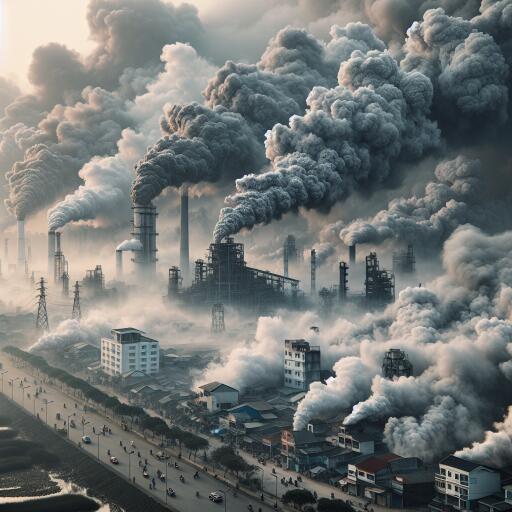
Vietnam Faces a Rising Tide of Air Pollution: Urgent Measures Called For
In recent findings unveiled by a global environmental survey, Vietnam ranks alarmingly high in air pollution levels both regionally and globally. With Hanoi taking the eighth spot among the world’s most polluted cities, the country grapples with air quality that falls significantly below global health standards. As of 2023, air pollution in Vietnam has surged back to pre-pandemic levels, indicating a pressing environmental crisis at hand.
On average, the air Vietnamese breathe contains particulate matter at nearly six times over the World Health Organization’s (WHO) recommended limit. This has profound implications for public health, mimicking the well-documented dangers of smoking. Air pollution is linked to a spectrum of adverse health outcomes, from respiratory infections to chronic diseases such as stroke, heart disease, and lung cancer, ultimately reducing life expectancy in Vietnam by an estimated 1.4 years.
The health burden of poor air quality is not evenly distributed, with vulnerable groups including children, the elderly, and those with pre-existing health conditions facing heightened risks. Intriguingly, indoor air pollution, often stemming from household cooking practices and secondhand smoke, equally contributes to the nationwide health crisis, disproportionately affecting women who are traditionally more exposed to these indoor pollutants.
The economic and societal toll of this environmental issue is non-negligible. Worker productivity, agricultural output, and tourism are all adversely affected, contributing to social and economic losses estimated at over $13 billion annually, signaling a significant drag on the nation’s GDP.
However, the tide can be turned with concerted efforts to combat air pollution. Initiatives to improve air quality promise to deliver broader benefits, aligning with climate mitigation strategies and paving the way for sustainable development. Positive steps have already been made, including Vietnam’s commitment at the COP26 conference to achieve net-zero carbon emissions by 2050 and the adoption of stricter emissions standards for vehicles.
Yet, effective mitigation demands a holistic approach, extending beyond individual actions to systemic changes in policy, industry practices, and urban planning. Root-level interventions are crucial, targeting fossil fuel dependency, advancing waste management, and promoting clean energy alternatives. For the populace, personal protective measures remain essential, particularly on days when pollution levels peak, though these are not universally accessible solutions.
Potential strategies to improve the situation include enhancing air quality monitoring and public information systems, putting protective measures in place around vulnerable communities, and accelerating the transition towards electric public transportation and renewable energy sources. The upcoming revisions of environmental policies and national plans offer a critical window for integrating more ambitious action items aimed at purifying the air.
With air pollution posing a clear and present danger to Vietnam’s public health and economy, the country stands at a crossroad. The path forward requires a commitment from all segments of society. From government and businesses to individuals, everyone has a role to play in reclaiming the right to clean air. The collective effort to address this issue not only promises to usher in a healthier, more prosperous Vietnam but also sets an example of environmental stewardship for the world to follow.





Leave a Reply